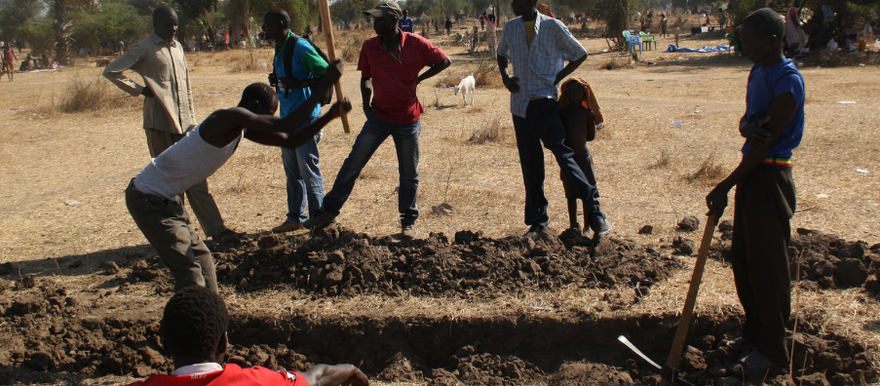The massive displacement of people from Jonglei into eastern Lakes state has caused significant land pressure, straining resources and overcrowding schools in Awerial County.
More than 85,000 displaced people are registered in the county who fled the war in Jonglei state since last December. Numerous aid agencies have deployed to the state to help them, including UN agencies, Doctors Without Borders and the Red Cross.
Speaking to Radio Tamazuj on Tuesday, Mariik Nanga Mariik, the information minister in Lakes state said that the displaced face shortages of food, shelter, health services and schools.
“The conditions of the internally displaced persons in Awerial are good but there are some things missing especially the issue of settlement. Now there are no areas of settlement and rains are coming,” he explained.
“We see that this is dangerous for them because children and elderly would be subjected to atmospheric conditions where they live now, there may be heavy rains and if they have no shelter, it would be very difficult for them,” said Mariik.
However, when asked if the government would allocate land for cultivation, he confirmed that they would offer lands for cultivation for anyone who wanted to cultivate.
Noting that the number of displaced is very large he said this requires more latrines, adding, “Without latrines during rains it would cause diseases and so they need latrines to be dug for them.”
He further emphasized that more schools were needed. He pointed out that the children were attending schools in good buildings in Jonglei but now are learning under trees, which may not be appropriate during the coming rainy season.
“The state government is trying to open for them schools but the rest would be under trees and this would not be good, so these are the difficulties we find as state government,” he said.
Asked if National Crisis Management Committee reached the displaced, the minister replied they were still waiting for the committee to arrive. He stated that they were expecting the committee to arrive in the coming days.
He said his government provided land and security but lacks resources to provide for the other needs of the displaced persons. They therefore look to the Crisis Management Committee to resolve this with aid organizations.
In terms of repatriation of displaced back to Jonglei, there is no formal programme for this yet, he said, but some individual families were going and coming as they wished.
Photo: Men building a latrine in Awerial, South Sudan. Oxfam estimates 1,500 latrines need to be built on the site to serve a population of around 80,000 people. (Grace Cahill/Oxfam)




